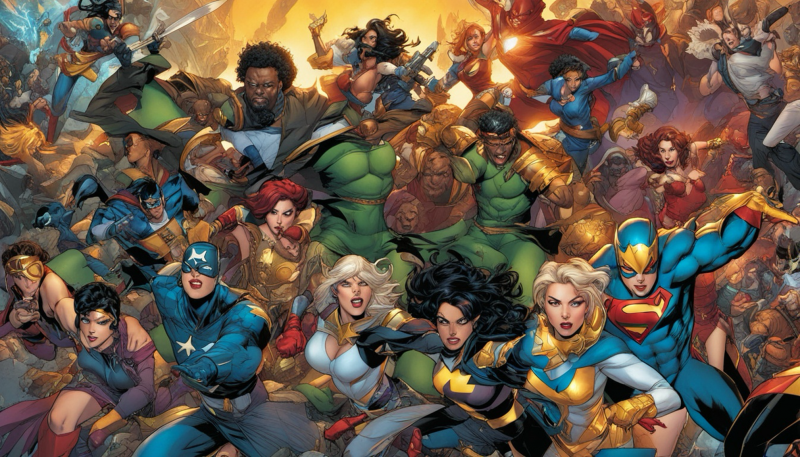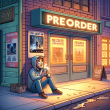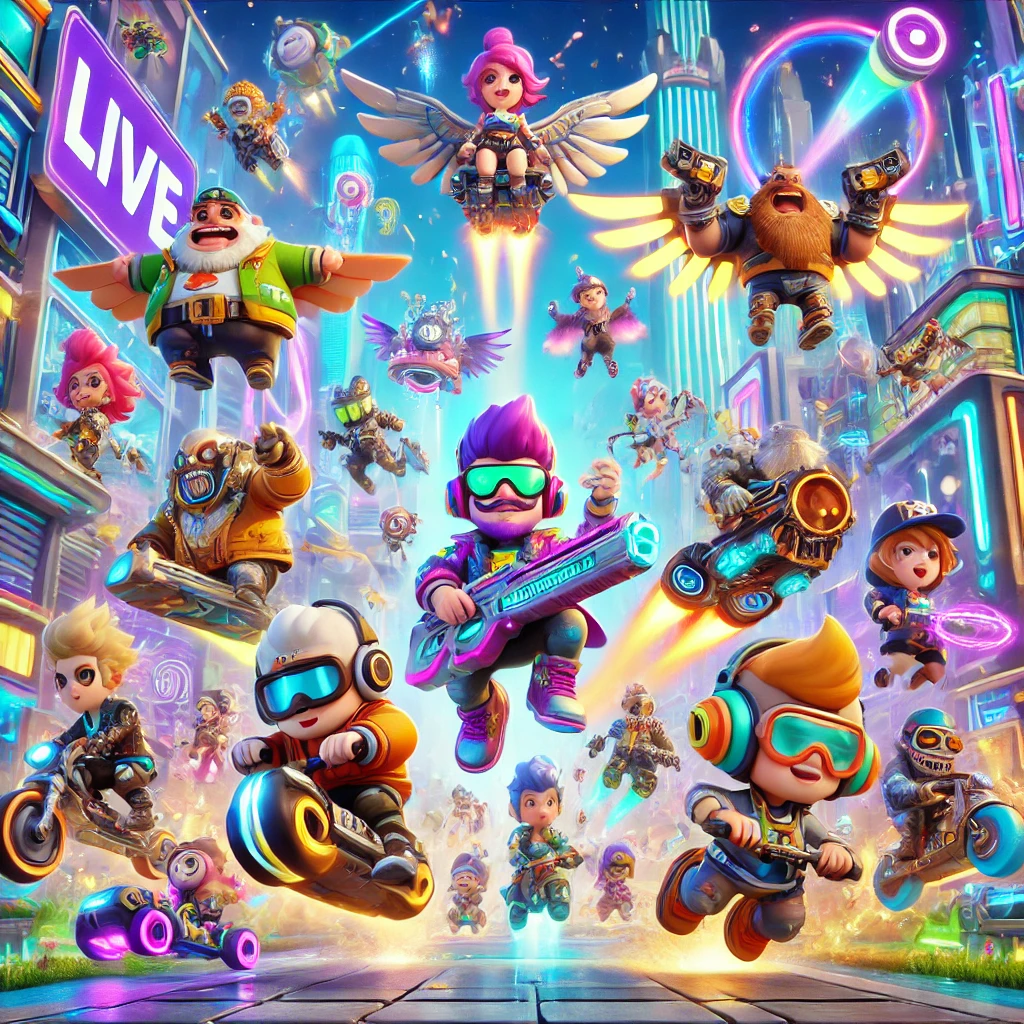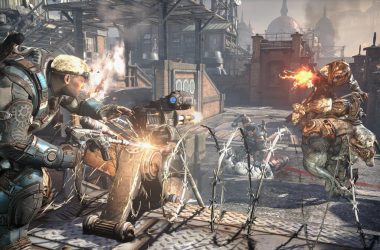Table of Contents Show
Superheroes are everywhere these days. Whether it’s the latest blockbuster movie, a binge-worthy streaming series, or the endless aisles of comic books, action figures, and branded merchandise, it’s almost impossible to escape their influence. And honestly, why would we want to? For as long as I can remember, superheroes have been a big part of my life. Like many of you, I grew up watching Saturday morning cartoons, dressing up as my favorite characters for Halloween, and devouring comic books with wide-eyed wonder. But as much as I love them, I have to admit that sometimes, just sometimes, superheroes get on my nerves. It’s this weird push-pull dynamic that makes them so fascinating to talk about – why do we love superheroes so much, and why do we sometimes resent them?
The Appeal of Superheroes: A Modern Mythology
To understand why we love superheroes, we need to go back to the basics. At their core, superheroes are our modern-day myths. Just as the ancient Greeks had their gods and heroes – Hercules, Achilles, Odysseus – we have our pantheon of super-powered beings. Whether it’s Superman flying through the sky with his cape billowing behind him or Wonder Woman wielding her lasso of truth, these characters serve a similar purpose: they reflect our ideals, our fears, and our aspirations.
One of the reasons superheroes resonate so deeply is because they embody qualities we admire but rarely see in ourselves. Think about it: Superman stands for truth, justice, and the American way. He’s the epitome of the perfect human (despite being an alien), someone who always does the right thing, even when it’s hard. Batman, on the other hand, shows us that you don’t need superpowers to be a hero – just an unshakable will and a desire to make the world a better place. These characters become symbols of hope, courage, and resilience, particularly during times of crisis.
For many of us, superheroes filled the gap left by traditional heroes and role models. In a world where real-life leaders often fail us, where the news is full of tragedy and hardship, we turn to superheroes for comfort. They offer us an escape, a way to imagine a world where good ultimately triumphs over evil, even if the journey is perilous. And let’s be honest – who doesn’t want to believe that someone out there has the power to save us from all the problems we face?
Relatable Yet Extraordinary
Despite their extraordinary abilities, superheroes are often deeply flawed and, in some ways, very relatable. They’re not just omnipotent beings soaring above the clouds – they’re also dealing with the same problems we face. Peter Parker, for example, may have the proportionate strength of a spider, but he’s also trying to balance school, work, and his responsibilities as Spider-Man. He’s awkward, insecure, and constantly struggling to find his place in the world. Who can’t relate to that?
It’s this duality that draws us in. Superheroes allow us to imagine what we would do if we had incredible powers while also grounding us in the reality of their struggles. When Tony Stark wrestles with his demons in Iron Man or The Avengers, it reminds us that even those who seem invincible on the outside may be battling internal struggles we don’t see. They reflect our internal dilemmas and desires, the push and pull between selfishness and altruism, fear and bravery, doubt and confidence.
But on the flip side, that relatability can also turn into frustration. We expect superheroes to be better than us, to always rise above their flaws, and when they don’t, we feel let down. It’s easy to become disillusioned with a superhero when they make decisions that don’t align with our idealized version of who they should be. This can be one of the reasons we grow to “hate” them – our expectations are so high, and when they’re not met, we feel personally betrayed.
The Escapism Factor
One of the most significant reasons we love superheroes is because they offer us an escape from reality. Life can be overwhelming, chaotic, and unfair. But when we turn on a superhero movie or pick up a comic book, we’re transported to a world where people have the power to change things, to right wrongs and defeat the bad guys. Even when the stakes are impossibly high – alien invasions, cosmic entities, world-ending threats – we know that, in the end, the superhero will prevail.
This kind of escapism is cathartic. When the world feels out of control, superheroes give us a sense of agency, even if it’s just for the duration of a two-hour movie. They remind us that it’s possible to overcome impossible odds and emerge victorious. In that sense, superheroes serve as a psychological buffer, a way for us to process the difficulties of life while still maintaining hope.
But here’s where things get tricky. While superheroes offer an amazing form of escapism, their prevalence can also make us numb to the real-world problems that don’t have such easy solutions. Sure, it’s fun to watch a caped crusader stop a supervillain from destroying the world, but what happens when we turn off the screen? Climate change, poverty, political corruption – these are the real supervillains we face, and no superhero is coming to save us from them. This is where some of that resentment can creep in. We spend so much time engrossed in these fantastical worlds that, when confronted with the harsh realities of life, it feels jarring and disillusioning.
The Problem with Perfection
Superheroes, especially in their early incarnations, were often depicted as flawless paragons of virtue. Think of Superman in the golden age of comics – he was nearly unbeatable, always doing the right thing, and rarely faced any real personal consequences. While this level of perfection was aspirational, it could also become a bit boring. When a character is always good and always wins, where’s the tension? Where’s the character growth?
That’s why so many modern superhero stories have leaned into the “dark and gritty” version of these characters. Batman has always had a bit of an edge, but in more recent years, we’ve seen Superman struggle with doubt and moral ambiguity, Wonder Woman question her place in the world, and Spider-Man grapple with the devastating consequences of his choices. These more complex, nuanced portrayals make superheroes more interesting – but they also make them more polarizing.
When we see superheroes falter, it can make us uncomfortable. We want our heroes to be better than us, not just because they have powers, but because they represent something greater. When they make mistakes or, even worse, commit acts we find morally reprehensible, it can feel like a betrayal of the very ideals they’re supposed to stand for.
A great example of this is Batman v Superman: Dawn of Justice. The movie was incredibly divisive, in part because it showed Superman in a much darker light than fans were used to. Instead of the smiling, Boy Scout figure we’ve come to expect, this version of Superman was brooding, conflicted, and capable of violence. For many fans, this was a step too far – it went against the very core of who Superman is supposed to be. But for others, it was a refreshing take on a character that had been, up until that point, almost too perfect.
Superhero Fatigue: When is Enough, Enough?
Now, let’s talk about what some people like to call “superhero fatigue.” As much as I love superheroes, even I’ll admit that the sheer volume of superhero content can feel overwhelming at times. With multiple Marvel and DC movies coming out every year, not to mention TV shows, video games, and comic book storylines, it can start to feel like superheroes are dominating every aspect of pop culture. And with that oversaturation comes a feeling of diminishing returns.
The issue is that not all superhero stories are created equal. Some are groundbreaking and push the genre forward, while others feel like rehashes of the same old tropes. After a while, even the most die-hard superhero fan can start to feel like they’re watching the same movie or reading the same comic book over and over again, just with a new villain or a different set of superpowers. This can lead to burnout and frustration, as we crave something new and different but feel stuck in a never-ending cycle of capes and spandex.
There’s also the question of stakes. When you have superheroes who are capable of saving the world – or the entire universe – it becomes harder and harder to raise the stakes in a meaningful way. How many times can we watch New York City get destroyed by aliens or a supervillain threaten to end all life on Earth before it starts to lose its impact? This is another reason why some people begin to “hate” superheroes – it feels like the genre has reached a point where nothing truly surprising or meaningful can happen anymore.
Conclusion: Love, Hate, and Everything in Between
So, why do we love superheroes? Because they inspire us, they give us hope, and they offer us an escape from the challenges of everyday life. They represent the best parts of ourselves, the parts that are brave, selfless, and unyielding in the face of adversity.
But why do we hate them? Because sometimes they feel too perfect, too ubiquitous, or too disconnected from the realities we face. We expect them to be better than us, and when they falter, it feels like a personal betrayal.
In the end, I think our relationship with superheroes will always be complicated. They are, after all, reflections of us – flawed, aspirational, and endlessly fascinating. And just like with anything we love deeply, our passion for them will always come with a little bit of frustration, a little bit of skepticism, and a whole lot of admiration.









